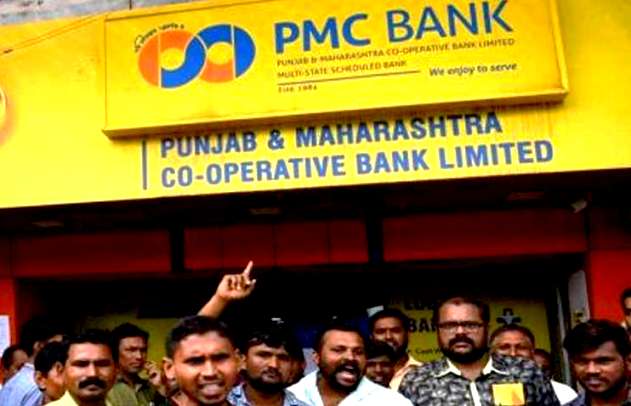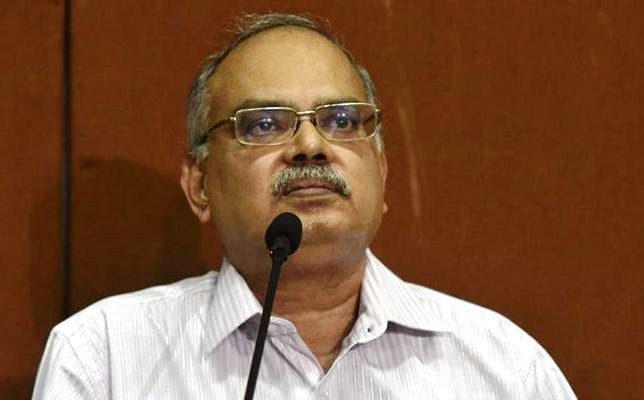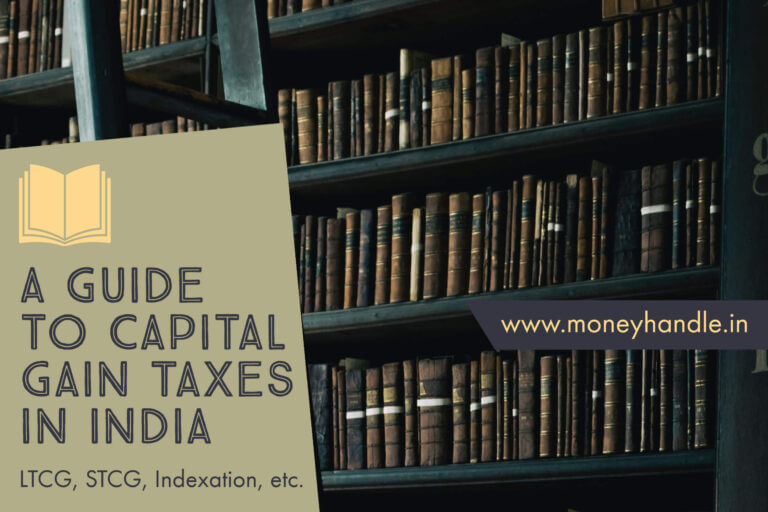
RBI has restricted depositors from withdrawing their own money from the Punjab and Maharashtra Co-operative Bank – PMC Bank after fraud by the top bank officials surfaced. More than four people have been reported to have died from
So today, even if you have six lac rupees deposited in the bank, all you can withdraw is 40k. But aren’t banks supposed to be safe places to keep your hard-earned money? After all, that’s what we have all been taught all along.
The Punjab and Maharashtra Co-operative (PMC) Bank Default Case

The Managing Director of PMC Bank Mr. Joy Thomas along with other 5 top officials had been distributing loans to a company called the Housing Development and Infrastructure Limited (HDIL) beyond the bank’s capacity. HDIL was a very large customer of PMC since the early 2000s and gave good business to the bank. In the last decade, HDIL repaid loans on time and that’s why the bank liked them.
Problems started arising when HDIL ran into trouble repaying the borrowed money. Due to past relations or over-dependence of the bank on HDIL, PMC still continued disbursing loans to HDIL. What is more striking is that the bank hid all this from the eyes of the Reserve bank of India during audits.
It is obvious that the bank could not keep giving loans forever and this is what happened when Mr Joy Thomas realized that HDIL was not going to pay back and he must surrender. When the news came out, depositors rushed to take out their money but they could not. The bank does not have enough to pay everyone back. PMC bank has defaulted.
What’s next for PMC Bank depositors?
RBI has increased the withdrawal limit to 40k which will allow nearly 77% of the depositors to completely withdraw all their money. However, those with higher amounts deposited in their savings accounts, RDs or Fixed deposits will have to just wait.
Most probably, PMC bank will seize assets of HDIL and liquidate them to recover the loans. HDIL owes PMC approx Rs 6000 crores but that will not be easy to recover since PMC is not the only bank HDIL has ditched.
Will all the depositors get back their money and when?
Their is no straight answer to this question. The options are:
1. PMC Bank acquires and liquidates the assets of HDIL
If PMC Bank acquires and liquidates the assets, it will recover nearly 50% of the loans. If this happens, the limit of withdrawal may be raised further so that people may take out more. Even in this case, the bank may not be able to completely return the full amount to its depositors. But the process of acquiring and selling HDIL’s assets will take a long time for sure.
2. PMC Bank unable to liquidate HDIL assets and declares default
If PMC bank surrenders and declares that it is unable to pay back, the depositors can expect to get back a maximum insured amount of Rs. 1 lac. from the Deposit Insurance and Credit Guarantee Corporation (DICGC) which insures all the bank deposits. The problem: Even if someone had ten lakhs deposited, they will get back only 1 lakh.

3. Government steps in and bails out PMC bank
This could be the best option for depositors. If PMC is unable to liquidate HDIL’s assets, the Indian government can step in and bail out PMC Bank which essentially means giving money to the bank so that it can repay the depositors. But it will cost an additional burden on the government. It remains to be seen whether the government – which can spend huge sums to the tune of 3000 crores on a statue, steps in to protect the depositors and not leave it to the RBI to handle.
Should everyone with bank deposits panic?
I don’t think that the situation demands all of you reading this to go out and pull your money out of the banks. But the PMC Bank default has certainly brought to light some serious questions about the ethics banks follow.
It is due to the money of small depositors that banks are able to give loans to large corporations.
Is it not then, the responsibility of these institutions to protect the interests of its customers instead of pleasing corporate houses and flout the rules without any fear? And what do the depositors get in case of a default? A humiliating sum of one lakh even if your deposits were worth tens of lakhs or crores, doesn’t matter. It is worth noting that India’s bank deposit insurance is the lowest in the world.
Also Read:
- Do you perform these 6 health checks on a company before buying its shares?
- What are Small Cap, Mid Cap, and Large Cap Companies? Definition by SEBI
- 10 smart hacks to get the most out of your credit card
How long does it take to get the money back from DICGC?
There have been cases of bank defaults in the past and depositors usually have to wait for several years before they get back the maximum insured sum of one lakh from the Deposit Insurance and Credit Guarantee Corporation (DICGC).
Depositors can only claim insurance from DICGC after the RBI cancels the bank’s license. History tells us that this process can take many
The DICGC should ideally release the sum within 2 months after it receives a list of eligible depositors from the liquidator. But it almost always takes many more months – even years to get that money. The Hindu BusinessLine reports in this excellent article that the DICGC has to date paid claims to 27 failed Commercial banks and 351 failed Co-operative banks.
How to protect yourself from Bank defaults?
To protect yourself from bank failures and save your hard-earned money, you must take precautions such as avoiding putting your money in co-operative banks. According to the statistics, these are more likely to fail than larger commercial banks. So always opt for larger banks such as SBI which are more responsible. They say never put all your eggs in one basket and therefore opening accounts in more than one bank is an option but it may not be feasible for everyone.
Take Away
It is foolish to expect that your money is safe in every bank. The deposit insurance offered by DICGC – 1 lakh – is the lowest in the world. The govt. must increase the insured sum to protect the common public.
UPDATE: Finance Minister Mrs. Nirmala Sitharaman announced in the Budget 2020-21 that the deposit insurance has been increased to Rs 5 lakhs. This was done to satisfy the old demand of depositors which became all the more justifiable after the PMC Bank default.
In light of recent bank defaults, it is wise to transfer your money to large commercial banks with a proven track record. Before opening a bank account in a small Bank, think about PMC – it was among the 10 largest co-operative banks in India and no one could imagine that it would fail.





